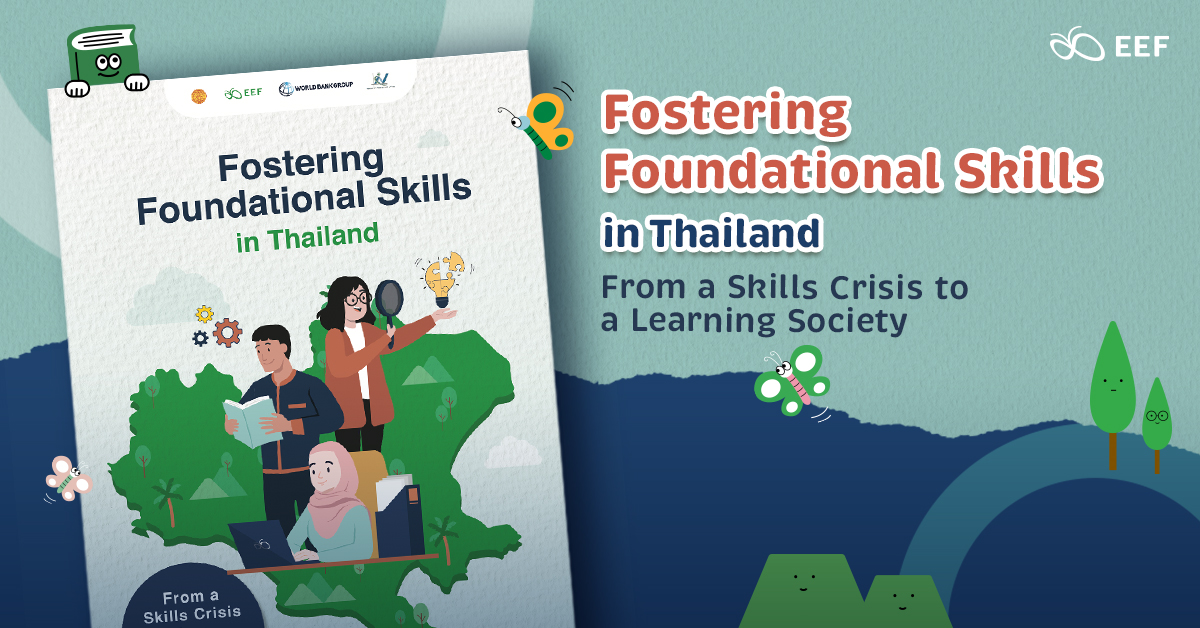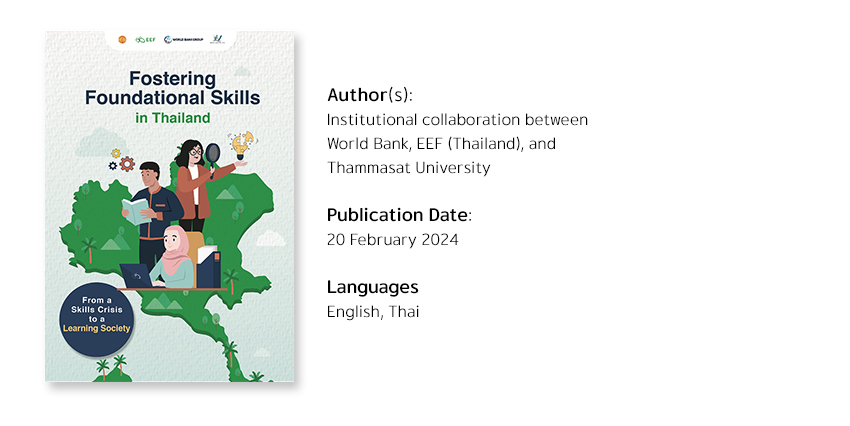
Summary of Key Findings and Policy Recommendations
Thailand is currently facing a foundational skills crisis. A significant majority of youth and adults lack basic competencies in reading, digital literacy, and socioemotional skills, affecting both individual well-being and national economic growth.
- Thailand’s Skills Crisis
A significant proportion of youth and adults in Thailand lack foundational skills in literacy, digital skills, and socioemotional capabilities, which are essential for thriving in the modern economy and society.
1.1 The Adult Skills Assessment in Thailand (ASAT), conducted in 2022, reveals that:
- 64.7% of youth and adults can barely read and understand short texts (e.g., to follow simple instructions).
- 74.1% have difficulties using basic ICT devices to perform simple digital tasks.
- 30.3% lack key socioemotional skills necessary to engage with others, be creative, and adapt to change.
2. Economic Impacts of Skills Deficits
- The economic costs of low foundational skills are substantial:
Estimated losses in labor productivity amount to 3.3 trillion baht, or approximately 20.1% of Thailand’s GDP in 2022.
3. Complementarity and Compounding Effects of Skills Deficits
- Skills are interrelated: lacking one can often be partially compensated by strengths in others.
- However, approximately 18.7% of youth and adults in Thailand lack all three foundational skills (literacy, digital, socioemotional), leaving them highly vulnerable in the labor market and life in general.
4. Demographic and Regional Disparities
- Skills deficits are higher among older adults, people with lower levels of education, and residents in rural areas.
- Notably, Bangkok shows comparatively better foundational skills outcomes than other regions (e.g., Northern and Southern regions), highlighting urban–rural divides.
5. Urgency for Policy Action
- The report calls for immediate and comprehensive policy responses to address the foundational skills crisis, which will require coordinated efforts across education, labor market, and social policy sectors.
Key Recommendations from the Report
1. Improve Strategic Guidance for Educators
- Demonstrate the nature of skills gaps using diagnostics.
- Prepare and disseminate evidence-based programs.
- Set a shared frame of reference using consistent learning standards and a foundational skills framework.
2. Enhance Efficiency and Inclusiveness of Decentralized Learning Delivery - Establish a coordinating institution at the provincial level.
- Ensure sufficient investments during early childhood development.
- Leverage the strengths of the private sector in learning delivery.
3. Deploy Innovative Instruments to Improve Teaching and Learning - Mobilize classroom observation tools to enhance pedagogical practices.
- Introduce Individual Learning Accounts (ILAs) to support vulnerable youth and adults in upskilling and reskilling regardless of their employment status.
4. Strengthen Quality Assurance in Teacher Development
- Require teachers to develop their capacity to foster foundational skills through preservice and professional development programs.
- Link this requirement to certification and recertification processes.
5. Leverage Strategic Information Campaigns
- Use the right messengers (e.g., local champions or experts) to deliver key messages.
- Highlight the tangible benefits of investing in foundational literacy, digital, and socioemotional skills—such as improved income and employability.

Download Full Report
https://en.eef.or.th/wp-content/uploads/2024/01/ASAT-E-Book-EN.pdfhttps://www.eef.or.th/wp-content/uploads/2024/02/asat_th_260824.pdf
(Thai Version)

